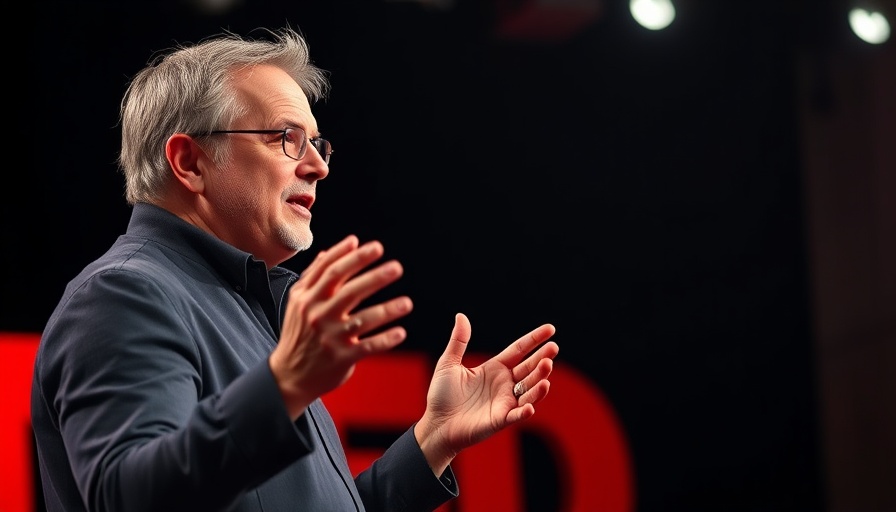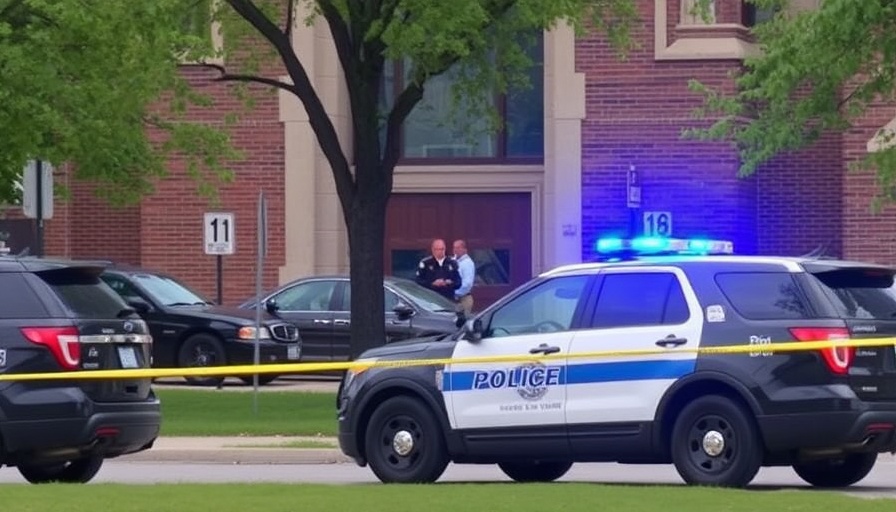
Reimagining Representation: Why We Need to Expand the House of Representatives
It’s no secret that many Americans feel a disconnect between themselves and their elected representatives in Congress. This sentiment of disenfranchisement has grown amidst rising global issues like social justice and political polarization. Recent discussions on the necessity of expanding the House of Representatives reveal an insightful approach to restoring faith in our democracy, as highlighted by Chuck Todd in his TEDx talk.
In 'Why it's time to expand the House of Representatives,' Chuck Todd presents compelling arguments about representation that sparked this deeper analysis.
Understanding the Foundational Principles
The House of Representatives was designed as the 'people's house,' intended to reflect the interests of average citizens. The framers of our Constitution envisioned a body that would grow alongside the population, fostering direct representation. For over a century, this principle was upheld, but a pivotal moment occurred in 1920 when Congress capped its membership at 435. Today, with one member representing roughly 800,000 citizens, many communities feel that their specific needs and concerns are lost in the shuffle.
The Consequences of Overpopulation in Congressional Districts
Having such an expansive constituency dilutes representation. A single member of Congress is burdened with the needs of many large demographics, making it nearly impossible to truly advocate for diverse community interests. This overextension results in disengagement—citizens feel more alienated from their government, leading to a vicious cycle where political representatives focus on factional entities rather than the broader public. The impact of this sentiment is profound, sparking conversations about innovation and change in how we perceive political structures.
A Call for Change: Dismantling the Cap on Representation
According to Todd, the solution to our growing disconnection lies in the expansion of the House. By implementing a new cap of one representative for every 400,000 citizens, we could open the doors for increased diversity in political thought. A larger Congress with upwards of 881 members would not only reduce the ratio of constituents per representative but also pave the way for more varied opinions within government, resulting in innovative solutions addressing pressing global issues like climate change and social justice.
The Benefits of Expanding Representation
This reform would have far-reaching advantages. Firstly, it would mitigate the effects of gerrymandering, a practice that has garnered widespread disdain. With smaller districts, creating partisan advantage becomes more complex, fostering fairness in electoral processes and promoting social equality. Secondly, with a more diverse Congress reflecting the varied demographics of the American populace, we may witness a newfound drive for innovative legislation addressing current global challenges.
A Glimpse into Our Political Future
As we consider the potential for a restructured House of Representatives, one must contemplate what this could mean for the future of democracy itself. Increased representation could lead to a renewed emphasis on inclusion and equality, vital components in establishing a fair society. An empowered legislative body can serve as a catalyst for addressing long-standing global issues such as poverty, healthcare, and education, encouraging collaboration that can enhance well-being across socioeconomic divides.
Conclusion: Embracing the Next Chapter in Democracy
In conclusion, the act of expanding the House of Representatives is not just about increasing the number of politicians; it's about making democracy accessible again. By fostering a system that enriches representation, we open avenues for dialogue, creativity, and innovation—elements critical for addressing the intricate challenges of today's world. It is imperative that citizens advocate for these changes to ensure a government that truly serves the people.
To become part of this movement towards greater inclusion and representation in government, engage with local advocacy groups focused on these reforms. Your voice matters, and together we can reshape the democratic landscape.
 Add Row
Add Row  Add
Add 




Write A Comment